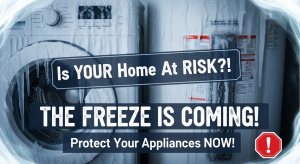The Appliance Energy Audit: How to Identify Power-Hungry Appliances That Are Secretly Inflating Your Coquitlam Hydro Bill
Wondering why your BC Hydro bill keeps climbing despite your best efforts to conserve energy? The culprits might be hiding in plain sight – those seemingly innocent appliances that are secretly draining your wallet through excessive power consumption, phantom loads, and outdated efficiency standards.[IMAGE PLACEHOLDER FOR IMAGE1]Picture this: you’re diligently turning off lights, unplugging chargers, and being mindful of your energy usage, yet your monthly hydro bill in Coquitlam still makes you wince. You’re not alone in this frustration – many homeowners don’t realize that inefficient appliances can account for up to 50% of their total electricity consumption. It’s like having a financial leak in your home that you can’t see but definitely feel every month when that bill arrives.An appliance energy audit is your detective toolkit for uncovering these power-hungry culprits that are working against your budget 24/7. Think of it as a health checkup for your home’s electrical system, where you’ll discover which appliances are the overachievers in all the wrong ways. Professional energy auditors use thermal imaging technology and comprehensive evaluation methods to spot hidden energy waste that’s invisible to the naked eye, examining everything from your HVAC system to that innocent-looking coffee maker on your counter.The numbers are pretty eye-opening when you dig into them. The average household owns more than 25 devices that draw standby power, with some individual energy vampires like gaming consoles costing upwards of $36 per year just to stay in their “instant-on” state. When you multiply that across all your appliances and factor in BC’s tiered electricity rates, those small drains add up to significant annual costs that could be going toward your next vacation instead of your utility company’s bottom line.
Key Outtakes:
- Heating and cooling systems typically gobble up 25-50% of your annual electricity usage, making them prime suspects in your energy audit investigation
- Energy vampire appliances can sneakily represent up to 10% of your household energy consumption through phantom power loads that persist even when devices appear “off”
- Swapping out a 15-year-old refrigerator with an ENERGY STAR model can pocket you over $300 in savings during the next five years
- Professional energy audits equipped with thermal imaging reveal hidden energy waste that DIY methods simply can’t detect
- BC Hydro’s time-of-day pricing creates golden opportunities to slash costs by strategically timing your appliance usage during off-peak hours
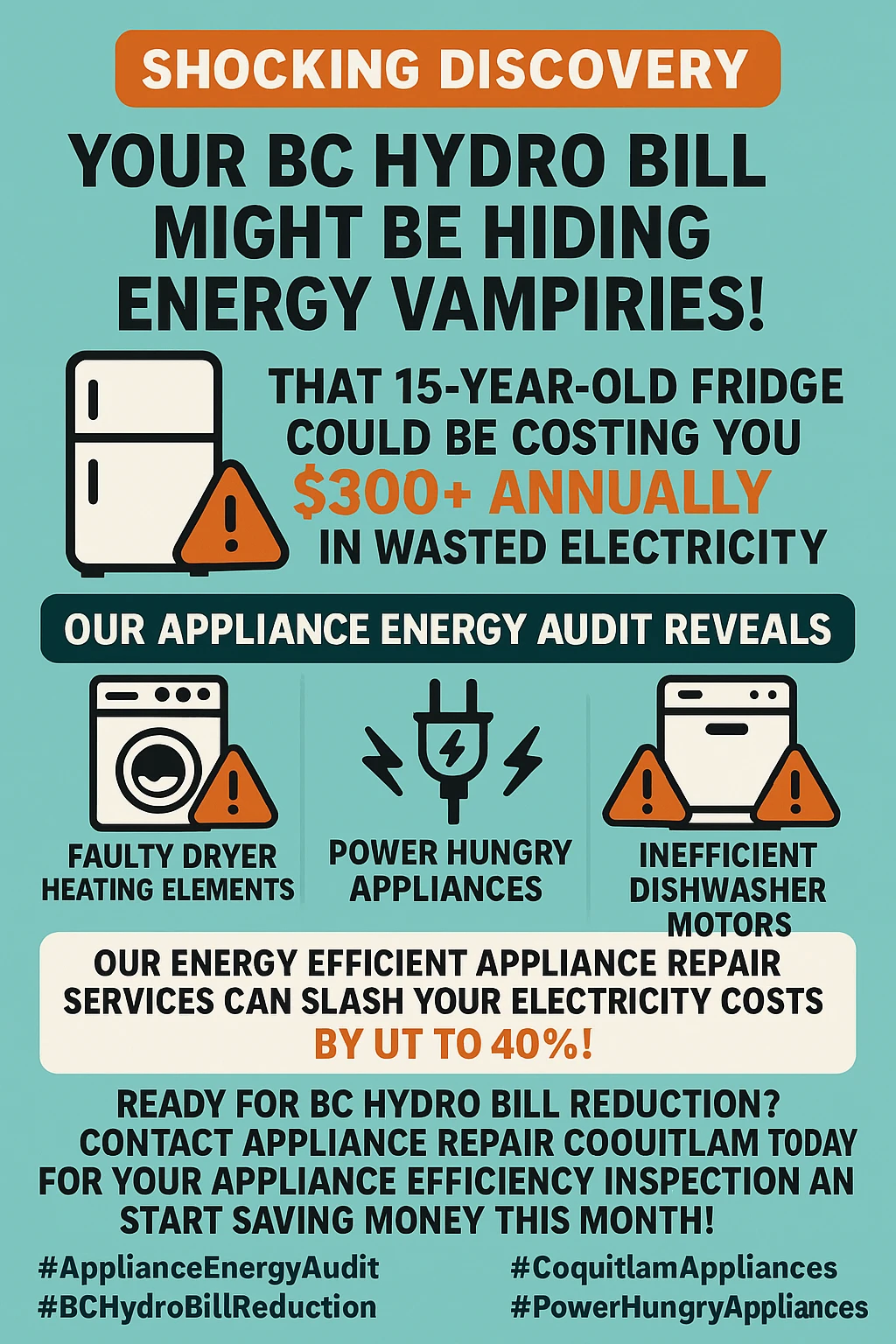
Understanding Your BC Hydro Bill and Appliance Impact
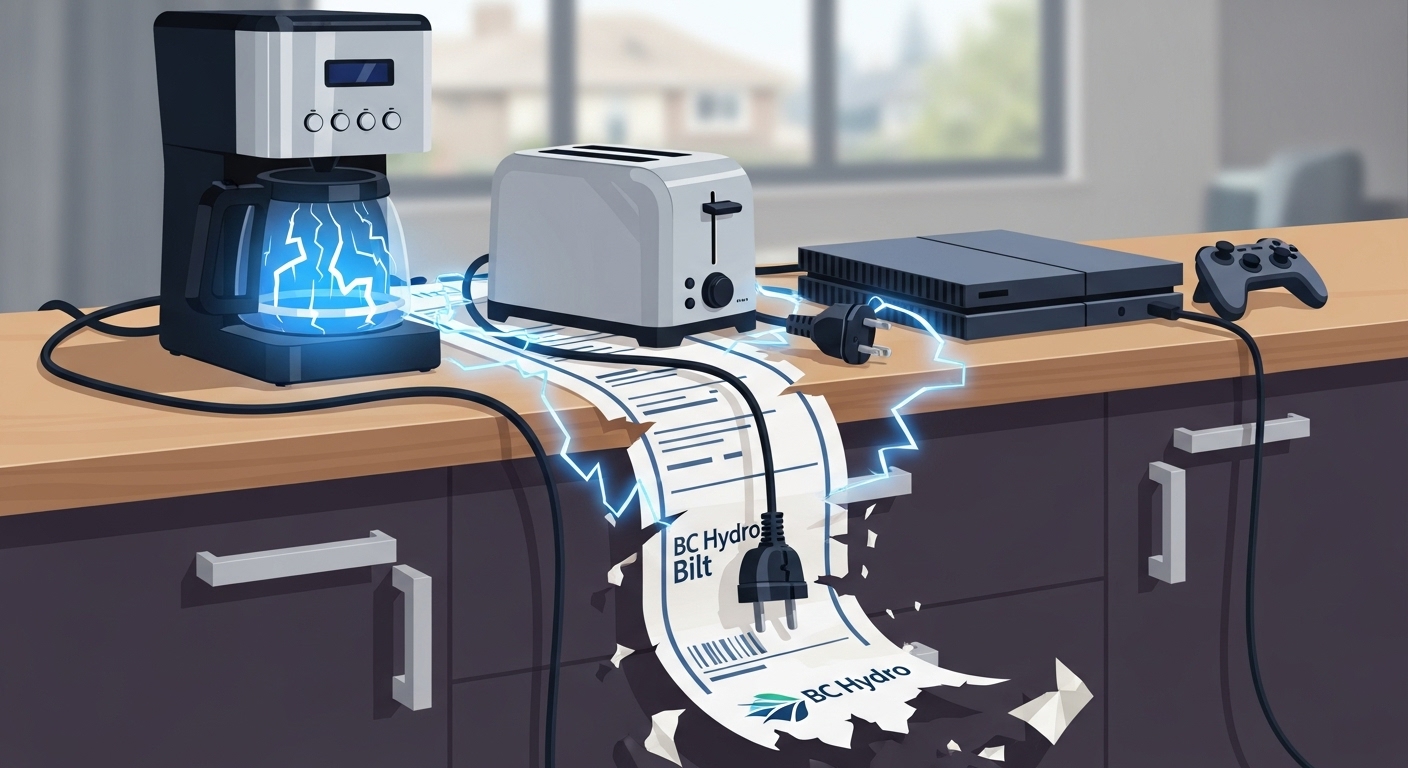 Before you can tackle your energy-guzzling appliances, you need to understand how BC Hydro’s billing structure works and where your money is actually going each month. It’s like trying to lose weight without knowing which foods are packed with calories – you need the baseline knowledge to make informed decisions that actually move the needle.BC Hydro operates on a tiered rate system that starts at 11.72 cents per kilowatt-hour (kWh) for Tier 1 usage, which covers your first chunk of monthly consumption. Once you cross into Tier 2, the rates jump higher, making energy efficiency not just environmentally friendly but financially crucial for keeping your bills manageable. This tiered structure means that every appliance upgrade or efficiency improvement has a compounding effect on your savings, especially if you’re currently a heavy electricity user who’s paying those higher tier rates.The reality check comes when you realize that about a third of your home’s energy consumption comes directly from your appliances. That’s not including your heating and cooling system – we’re talking about refrigerators, washers, dryers, dishwashers, and all those other devices you depend on daily. Studies show that the average household only uses about 65% of what they spend monthly on electricity efficiently, meaning there’s a massive opportunity for improvement hiding in plain sight.What makes BC unique is our moderate coastal climate, which creates different appliance usage patterns compared to other regions. While homes in Arizona are cranking air conditioning all summer, and houses in Alberta are running heaters constantly through winter, Coquitlam residents have more seasonal flexibility. This actually works in your favor during an energy audit because you can optimize different appliances for different seasons, creating year-round savings strategies that adapt to our local weather patterns.
Before you can tackle your energy-guzzling appliances, you need to understand how BC Hydro’s billing structure works and where your money is actually going each month. It’s like trying to lose weight without knowing which foods are packed with calories – you need the baseline knowledge to make informed decisions that actually move the needle.BC Hydro operates on a tiered rate system that starts at 11.72 cents per kilowatt-hour (kWh) for Tier 1 usage, which covers your first chunk of monthly consumption. Once you cross into Tier 2, the rates jump higher, making energy efficiency not just environmentally friendly but financially crucial for keeping your bills manageable. This tiered structure means that every appliance upgrade or efficiency improvement has a compounding effect on your savings, especially if you’re currently a heavy electricity user who’s paying those higher tier rates.The reality check comes when you realize that about a third of your home’s energy consumption comes directly from your appliances. That’s not including your heating and cooling system – we’re talking about refrigerators, washers, dryers, dishwashers, and all those other devices you depend on daily. Studies show that the average household only uses about 65% of what they spend monthly on electricity efficiently, meaning there’s a massive opportunity for improvement hiding in plain sight.What makes BC unique is our moderate coastal climate, which creates different appliance usage patterns compared to other regions. While homes in Arizona are cranking air conditioning all summer, and houses in Alberta are running heaters constantly through winter, Coquitlam residents have more seasonal flexibility. This actually works in your favor during an energy audit because you can optimize different appliances for different seasons, creating year-round savings strategies that adapt to our local weather patterns.
Identifying the Biggest Power-Hungry Appliances
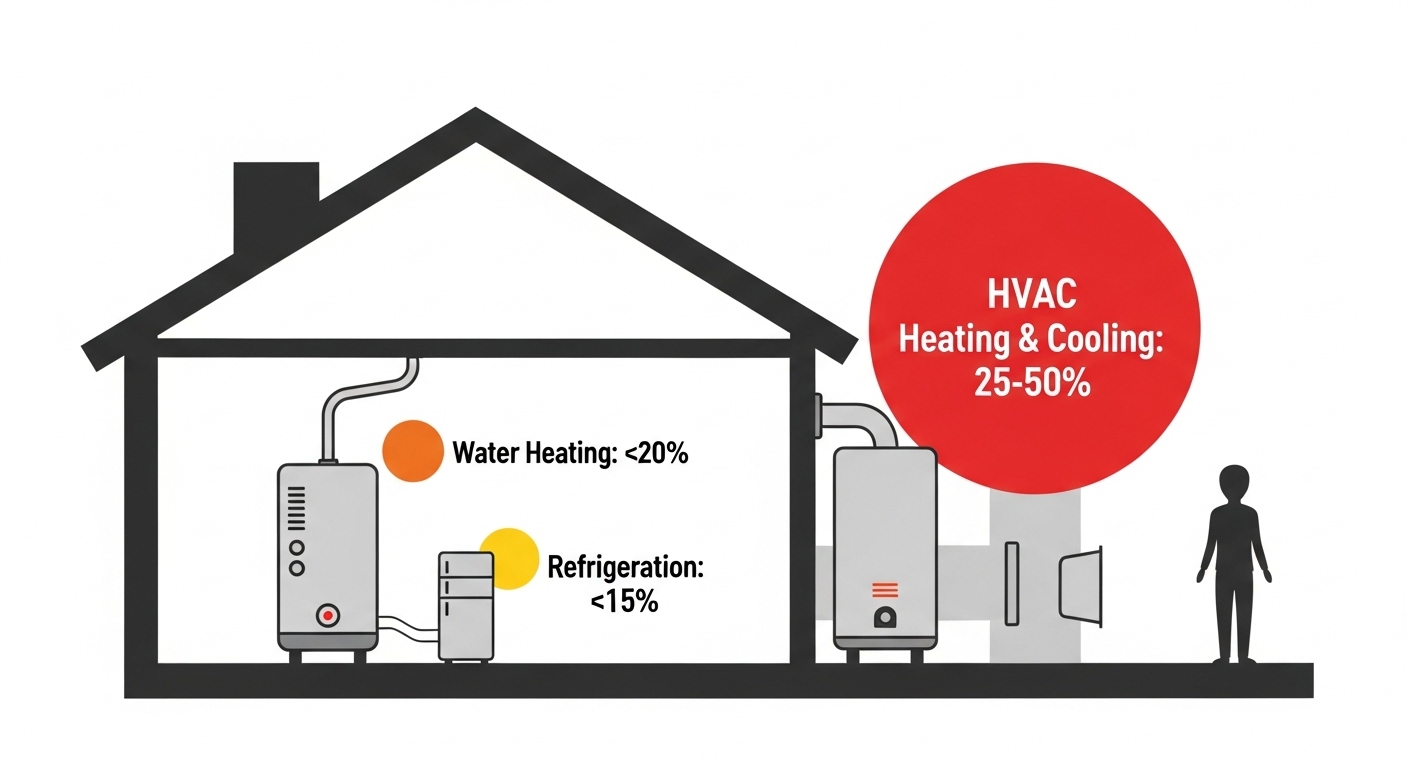 Now that you understand the billing landscape, it’s time to play energy detective and identify which appliances are the biggest offenders in your home. Think of this as profiling your household’s energy consumption – some appliances are obvious heavy users, while others are sneaky energy hogs that fly under the radar.Your heating, ventilation, and air conditioning (HVAC) system is almost always the heavyweight champion of energy consumption. For electrically-heated homes in BC, heating alone can account for up to 50% or more of your total hydro bills throughout the year. That’s like having one appliance eat half your energy budget before anything else even gets a chance. Central air conditioners and heaters are energy-intensive by nature, typically consuming 28 to 63 kilowatt-hours per day when they’re running hard.The silver lining is that HVAC systems also offer the biggest opportunity for impact when you optimize them. Regular maintenance alone can significantly reduce energy costs, and strategic upgrades like programmable thermostats or improved insulation can deliver dramatic bill reductions. Consider exploring heat pump options, which are the most energy-efficient heating and cooling systems available in BC and can provide both heating and air conditioning in one unit.Water heating typically claims the silver medal for energy consumption, especially if you have an electric water heater. It’s likely the second biggest energy consumer in your home, running quietly in the background while heating water for showers, dishes, and laundry. The sneaky thing about water heaters is that they’re constantly working to maintain temperature, even when you’re not using hot water, which means they’re burning energy around the clock.Hot water systems can be hidden energy guzzlers, making it essential to address obvious waste like dripping faucets and consider upgrades like low-flow showerheads and faucet aerators. Water heaters also need regular maintenance – flushing them annually to remove sediment buildup can improve efficiency significantly and extend the unit’s lifespan, giving you better performance and lower bills.Kitchen appliances present an interesting mix of energy consumption patterns that many homeowners underestimate. Your refrigerator racks up significant electricity usage simply because it’s always on, despite not requiring much energy per hour of operation. It’s the marathon runner of your appliance lineup – not the fastest, but definitely going the distance. Modern refrigerators are much more efficient than older models, but if yours is over 15 years old, it could be using twice the energy of a new ENERGY STAR model.Electric ovens are the sprinters of kitchen energy consumption – they use a lot of power when they’re on, typically accounting for about 3% of monthly electricity usage. The key is that they’re usually not running for extended periods, so their total impact is more manageable. Dishwashers, surprisingly, require relatively low amounts of electricity and usually account for only around 2% of monthly usage, making them less of a priority target for energy audits compared to other appliances.
Now that you understand the billing landscape, it’s time to play energy detective and identify which appliances are the biggest offenders in your home. Think of this as profiling your household’s energy consumption – some appliances are obvious heavy users, while others are sneaky energy hogs that fly under the radar.Your heating, ventilation, and air conditioning (HVAC) system is almost always the heavyweight champion of energy consumption. For electrically-heated homes in BC, heating alone can account for up to 50% or more of your total hydro bills throughout the year. That’s like having one appliance eat half your energy budget before anything else even gets a chance. Central air conditioners and heaters are energy-intensive by nature, typically consuming 28 to 63 kilowatt-hours per day when they’re running hard.The silver lining is that HVAC systems also offer the biggest opportunity for impact when you optimize them. Regular maintenance alone can significantly reduce energy costs, and strategic upgrades like programmable thermostats or improved insulation can deliver dramatic bill reductions. Consider exploring heat pump options, which are the most energy-efficient heating and cooling systems available in BC and can provide both heating and air conditioning in one unit.Water heating typically claims the silver medal for energy consumption, especially if you have an electric water heater. It’s likely the second biggest energy consumer in your home, running quietly in the background while heating water for showers, dishes, and laundry. The sneaky thing about water heaters is that they’re constantly working to maintain temperature, even when you’re not using hot water, which means they’re burning energy around the clock.Hot water systems can be hidden energy guzzlers, making it essential to address obvious waste like dripping faucets and consider upgrades like low-flow showerheads and faucet aerators. Water heaters also need regular maintenance – flushing them annually to remove sediment buildup can improve efficiency significantly and extend the unit’s lifespan, giving you better performance and lower bills.Kitchen appliances present an interesting mix of energy consumption patterns that many homeowners underestimate. Your refrigerator racks up significant electricity usage simply because it’s always on, despite not requiring much energy per hour of operation. It’s the marathon runner of your appliance lineup – not the fastest, but definitely going the distance. Modern refrigerators are much more efficient than older models, but if yours is over 15 years old, it could be using twice the energy of a new ENERGY STAR model.Electric ovens are the sprinters of kitchen energy consumption – they use a lot of power when they’re on, typically accounting for about 3% of monthly electricity usage. The key is that they’re usually not running for extended periods, so their total impact is more manageable. Dishwashers, surprisingly, require relatively low amounts of electricity and usually account for only around 2% of monthly usage, making them less of a priority target for energy audits compared to other appliances.
DIY Appliance Energy Audit: Step-by-Step Process
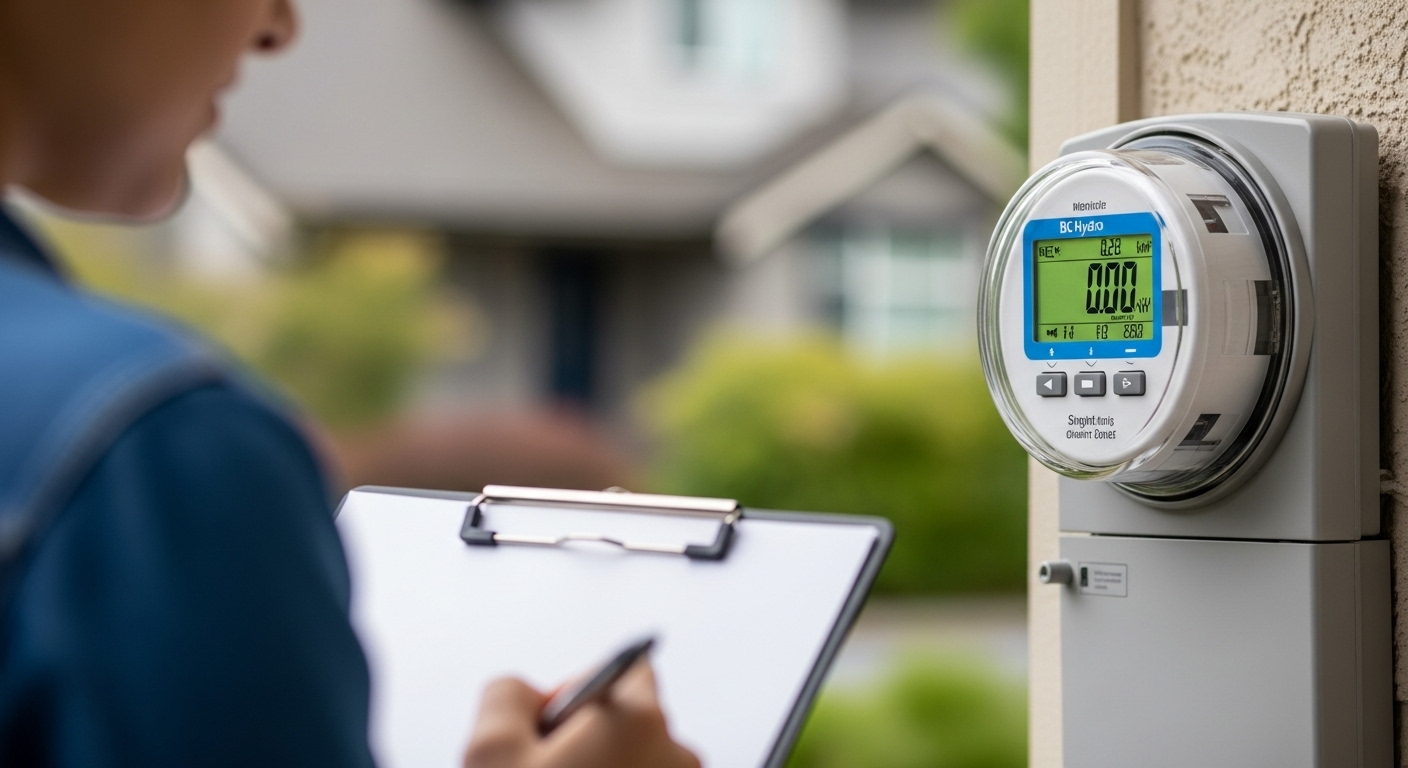 Armed with knowledge about which appliances are likely culprits, you can now conduct your own energy audit to get specific data about your home’s consumption patterns. This DIY approach won’t replace a professional assessment, but it’ll give you valuable insights and help you prioritize where to focus your improvement efforts.Your power meter is the starting point for load testing, and the process is surprisingly straightforward once you know the technique. Begin by turning off all appliances at the wall, including those sneaky standby modes that keep devices ready for instant operation. Check your meter and record the current kilowatt reading – this gives you your baseline consumption from just the basic electrical systems in your home that can’t be turned off.The real detective work happens when you test individual appliances by turning them on one at a time and noting how the kilowatt reading changes. This method lets you measure exactly how much power each appliance draws during operation. Some devices will show dramatic spikes when they first start up, while others maintain steady consumption levels. Keep detailed notes because patterns will emerge that help you understand your home’s energy personality.Calculate the actual cost impact by multiplying each appliance’s kilowatt usage by the kilowatt-hour rate shown on your BC Hydro bill. This transforms abstract energy measurements into real dollars and cents, making it clear which appliances deserve your attention
Armed with knowledge about which appliances are likely culprits, you can now conduct your own energy audit to get specific data about your home’s consumption patterns. This DIY approach won’t replace a professional assessment, but it’ll give you valuable insights and help you prioritize where to focus your improvement efforts.Your power meter is the starting point for load testing, and the process is surprisingly straightforward once you know the technique. Begin by turning off all appliances at the wall, including those sneaky standby modes that keep devices ready for instant operation. Check your meter and record the current kilowatt reading – this gives you your baseline consumption from just the basic electrical systems in your home that can’t be turned off.The real detective work happens when you test individual appliances by turning them on one at a time and noting how the kilowatt reading changes. This method lets you measure exactly how much power each appliance draws during operation. Some devices will show dramatic spikes when they first start up, while others maintain steady consumption levels. Keep detailed notes because patterns will emerge that help you understand your home’s energy personality.Calculate the actual cost impact by multiplying each appliance’s kilowatt usage by the kilowatt-hour rate shown on your BC Hydro bill. This transforms abstract energy measurements into real dollars and cents, making it clear which appliances deserve your attention

